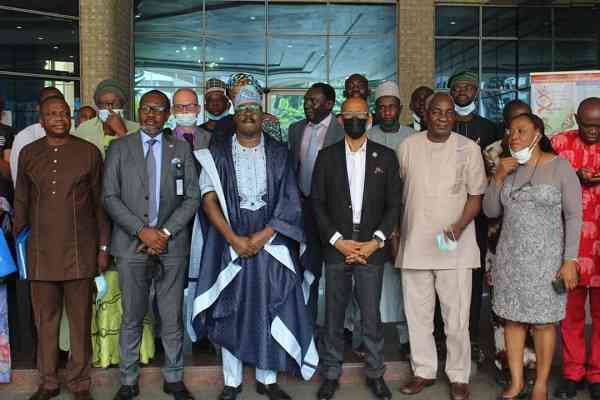A cross-section of stakeholders have commenced the review of Nigeria’s draft National Biosecurity Policy developed by the National Biosafety Management Agency (NBMA) under the Federal Ministry of Environment.

Giving the opening remarks at the two-day meeting organized in collaboration with the World Health Organisation (WHO) yesterday in Abuja, the Minister of State for Environment, Barr. Sharon Ikeazor, said biosecurity remained a strategic and integrated approach that encompassed the policy and regulatory frameworks (including instruments and activities) for analysing and managing relevant biorisks to human, animal and plant health, and associated risks to the environment.
She said this could not be truer of the draft national biosecurity policy which had been developed with the full recognition of the biosecurity as a multisectoral discipline, with all efforts geared towards a one-health approach – health, agriculture and the environment, adding it is a c
collaborative approach aimed at understanding the responsibilities of various sectors – subnational, MDAs, NGOs, communities and individuals.
“I wish to re-emphasize that humans, animals, plants and water bodies which are at the receiving end of the impact of bio-threats are parts of the environment and the negative impact on any of them seriously affects the ecosystem and disrupt the socio-economic activities of the country. Therefore, this document before us will drive the institutionalization of a harmonized and workable biosecurity system which will serve as a fundamental approach to minimizing the risks of biological threats to human, animal, plant health, taking into account the environment and our economy,” she said.
Ikeazor who was represented by the ministry’s director of human resources management, Mr Lawrence Adikpe, urged all participants to be at alert and be present in mind and body to do justice to the task for which they had been called to perform, bearing in mind that it is a service to the nation, humanity and the world at large.
The director-general of NBMA, Dr. Rufus Ebegba, earlier in his address, said the review of the draft document presented by the minister of state for environment on December 10, 2020 was a very important action expected to galvanize efforts towards safeguarding human health, the environment and our economy.
The NBMA boss called for the support of MDAs, NGOs, and other stakeholders, to work for the common good of the country by minimising the risks posed by biological threats to human, animal, and plant health, adding one of the mandates of the agency was to ensure that infectious biological detectives were controlled so as to have a healthy human system.
Ebegba noted that the agency had unveiled stakeholder consultative meetings on the Biosecurity Act, which would ensure a proper biosecurity system in the country, when implemented.
In his goodwill message, the WHO Country Representative in Nigeria, Dr Walter Kazadi, said his organisation would continue to support Nigeria in the development of its biosecurity policy document, even as he urged NBMA to take note of the benefits associated with biosecurity, which include improved public health, enhanced international trade, good agricultural production and protection of the environment in reviewing the draft policy.
Also, the assistant director, Food and Agriculture Organisation (FAO) of the United Nations, David Fehintola, noted that Nigeria had made significant progress in domesticating biosafety since it became a signatory to the UN Cartagena Protocol, saying the NBMA had prioritized formulation of a standardized national policy as a next step in improving the biosecurity and biosafety landscape in Nigeria. He added that the policy aimed to provide a structure for effective coordination, regulation and implementation of biosecurity activities in the nation.
The FAO, according to him, is committed to the enhancement of biosafety and biosecurity in Nigeria through the Emergency Centre for Transboundary Animal Diseases (ECTAD) program and would continue to support the NBMA, which he said was fulfilling its regulatory responsibilities admirably.
“We look forward to the review and eventual inauguration of the National Biosecurity Policy, which will ensure environmental, human and socio-economic safety while harnessing the benefits of biotechnology and its outputs to improve agricultural production and livelihoods,” he added.


